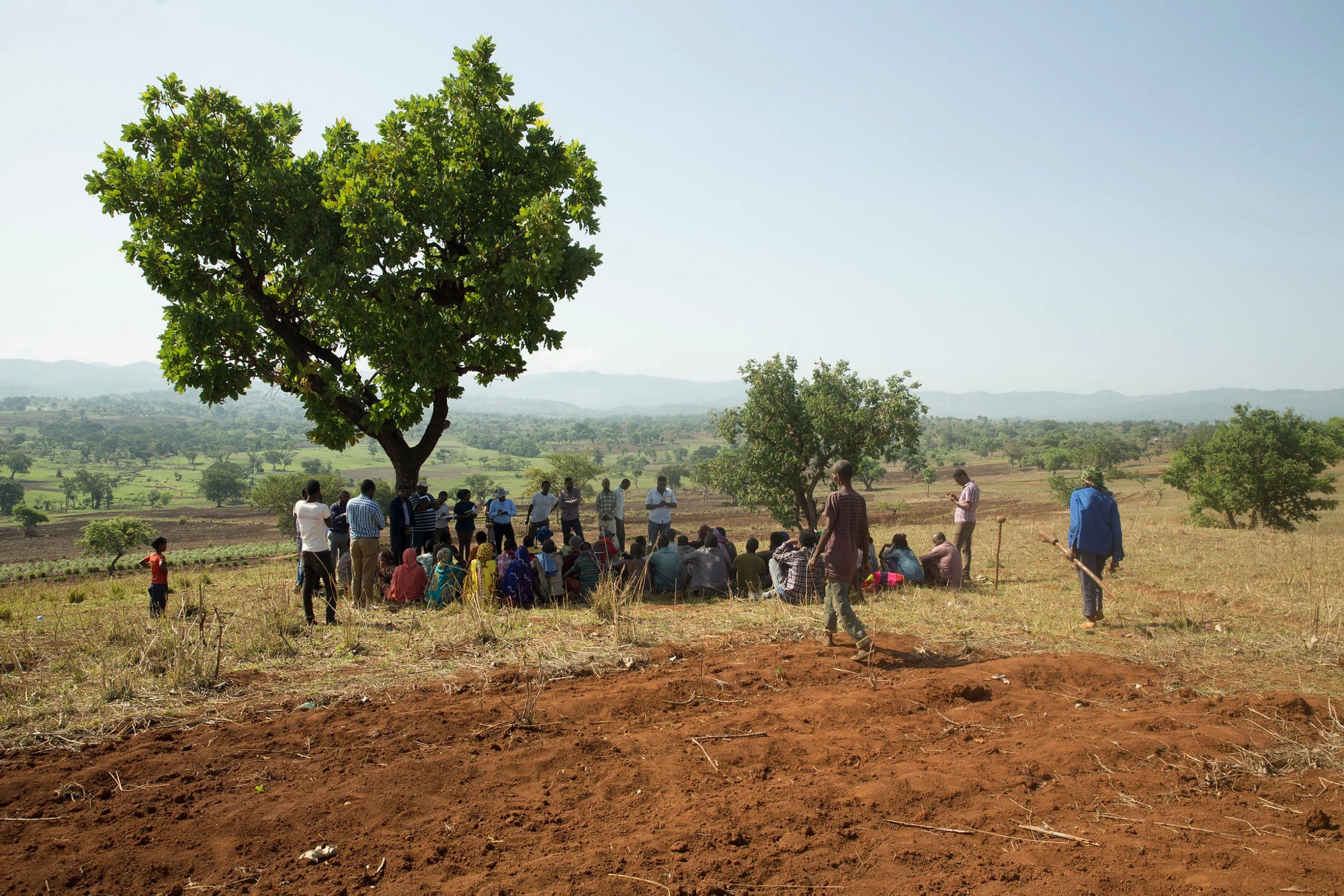There is wide-ranging consensus that nature-based solutions, including sustainable forestry and agriculture, can help us achieve 37% of emission reductions targets in the Paris agreement. Despite this, sustainable land use remains woefully under resourced. Of the estimated $579 billion invested globally per year in climate finance (the average over 2017-2018), only about 3.6% went to agriculture, forestry and other land use—despite the fact that these sectors are responsible for around a quarter (23%) of global greenhouse gas emissions.


The private sector holds the answer, but collaboration is key
The development sector’s volume of climate finance is dwarfed by the private sector’s expenditure and investment in forestry and agriculture. To maximize impact, the development sector needs to focus on using its resources to encourage the private sector to operate in a way that considers people, profits and the planet, thereby boosting the positive effects of its funding.
Using public money to support sustainable land use initiatives can unlock new investment opportunities, innovation, and new flows of finance from the private sector. If the public sector—from local governments to multilateral financial institutions—and the private sector—from smallholder farmers to large insurers and multinational companies—can work together to make sustainable land use more profitable than business-as-usual practices (e.g., slash and burn, among others), we will be in a better position to achieve the emission reductions we need to meet international climate targets.
Public support to enable private action
More and more companies and industries in sectors such as timber, cocoa, coffee, rubber, and palm are adopting net zero-deforestation commitments and more environmentally-friendly sourcing standards. The challenge, however, is how to turn those private sector commitments into action.
The public sector plays a critical role in creating enabling environments that facilitate the implementation of these commitments. Specifically, the public sector, supported by development climate finance, can address the governance, regulatory, and financial risks that prevent or delay the private sector from integrating environmental thinking into supply chain management. Using development finance to tackle these issues will support industry players in implementing their commitments and scaling up their ‘greener’ practices.
Research on eliminating deforestation from the cocoa supply chain analyzes current sustainability projects and best practices in the cocoa sector and points to public-private cooperation and alignment as a key strategy for achieving zero-deforestation cocoa. In countries such as Cote d’Ivoire, Ghana, and more recently, Colombia, governments, donors, and NGOs are working out policies—and working with producers all along the cocoa supply chain. This work is increasing impact and investment in certification schemes, agroforestry and tree preservation programs, as well as farmer training to adopt climate-smart practices.

Boosting Ethiopia’s sustainable coffee sector
There are now some convincing examples of how direct public-private partnerships are effectively leveraging investments in greener land use programs and systems that can deliver benefits well after a particular project ends. Your cup of coffee is a case in point.
In 2016, the World Bank’s BioCarbon Fund Initiative for Sustainable Forest Landscapes (ISFL) teamed up with the International Finance Corporation (IFC) and coffee giant Nespresso to support the company’s global AAA Sustainable Coffee Program in Oromia, Ethiopia. Oromia is one of the country’s most important coffee-growing regions, and where smallholder producers struggle to make a living, often living on less than $1 a day.
This Nespresso-IFC-ISFL collaboration has united public and private sector goals to make coffee planting and processing more environmentally friendly; to increase the productivity and prosperity of farmers; and to bring climate resilience to Ethiopia’s coffee industry. With $6 million from the World Bank Group (including grants and loans), Nespresso has been able to scale up support to reach over 30,000 farmers and 69 coffee processing plants in just two years.
AAA program participants have received training and technical assistance on everything from improving coffee quality and production, to sustainability standards and gender inclusivity. They have also planted some 250,000 indigenous shade tree seedlings on their farms to provide new tree cover that can improve the quality and quantity of coffee harvests, restore degraded land, and increase carbon sequestration.
This strategic alliance has translated into increased coffee yields in the Oromia region, with an increase in production of up to 48 percent over from the average produced in previous years. The alliance has also helped to improve livelihoods for AAA farmers and mill workers, and has reduced environmental degradation. It has also demonstrated the potential for public sector resources to leverage private sector investment and finance in a way that reduces poverty, increases environmental conservation, and reduces greenhouse gases.
Both public and private sector investments are needed to achieve sustainable land use. We simply can’t have one without the other. If we work together to scale up collaboration, we can help level the playing field for the poorest, open new markets, and mitigate climate change while we are at it.
A version of this piece was originally posted by the Tropical Forest Alliance.


Join the Conversation